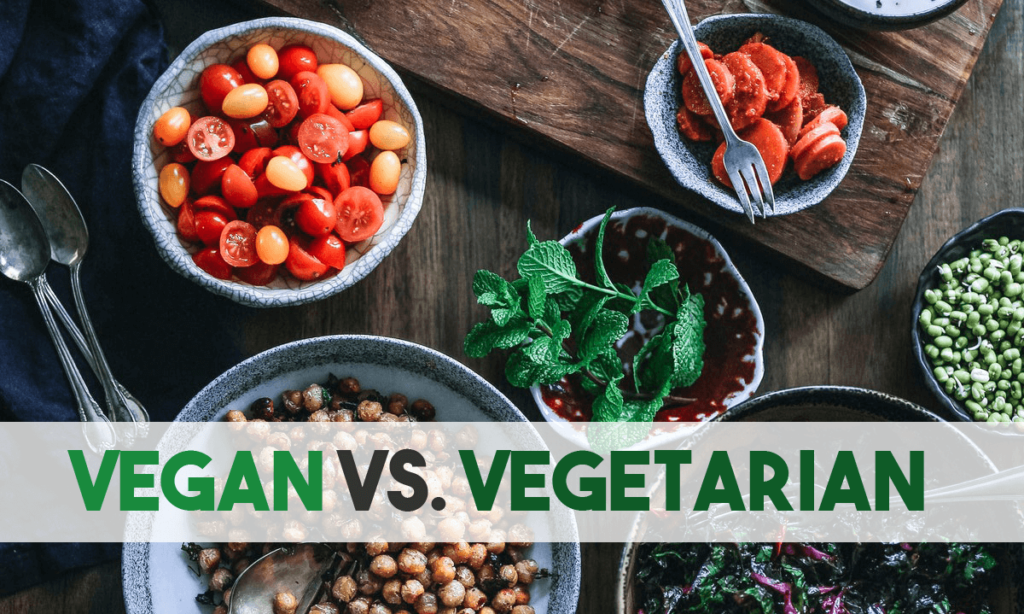What you need to know
about plant-based diets
We’ve all known people who have gone vegetarian or vegan and may have even dabbled in plant-based diets ourselves. It’s a complicated subject and not everyone ditching meat is eating the same types of diets. So what are the differences between all the different terms (such as vegan, vegetarian, plant-based, pescatarian, etc.), and why are they important?
What is the difference between vegetarian and vegan?

Vegetarians don’t eat meat, but may still consume dairy products and eggs. Vegans, on the other hand, do not consume any animal products. The reasoning for a person being vegetarian or vegan can vary. For some, eating a vegan diet simply isn’t practical based on their location and availability of vegan products/options. There are also many pescatarians, who choose a vegetarian/vegan lifestyle but include fish into their diet. All of these can be considered plant-based diets, but as you can see the specifics for each diet varies.
What is a flexitarian?
Flexitarian is a mostly plant-based diet, but sometimes includes meat or animal products. This is a great option for people who want to eat a mostly vegetarian or vegan diet, but would also like to leave room for flexibility and allow the occasional meal with meat. A flexitarian diet is also more practical for most people than a strict vegetarian or vegan diet.
What is Veganuary?
You may have heard of Veganuary or Meatless Monday. If not, these are campaigns to challenge people to choose meatless meals either for 1 day a week, such as with Meatless Monday, or an entire month. Culturally, meat is a big part of most American diets. In many parts of the country adequate vegetarian/vegan options simply aren’t available. This leaves vegetarians stuck eating grilled cheeses and potatoes for most meals. If your motivation for going meatless is health-related, this is hardly an improvement. However, there are multiple reasons why anyone person may choose a plant-based diet.
Why are people choosing plant-based diets?
There are 3 main reasons people choose to switch to a plant-based diet: Health, Environmental, and Animal welfare.
Health
With at least 70% of the US population being either overweight or obese, it’s safe to say that the average American diet isn’t doing the general population any favors. With processed and fast food being on the forefront on most people’s diets, whole foods and plant based meals may be the answer to improving this grim statistic. According to Harvard Health, “plant-based diets have been shown to support health, including a lower risk of developing coronary heart disease, high blood pressure, diabetes, and increased longevity!”
Environmental
According to UCLA, “If we all eliminated meat and milk from our diets and went to plant sources of these foods, we would be saving at least 50% of our water use. We would be saving untouched habitats (Rainforests, marshes) from being destroyed to produce more livestock feed, and we would be creating less pollution in our waterways, streams, and oceans that indirectly threaten human, animal, and plant lives.” Global climate change is an increasingly alarming concern. Anything we can do as individuals to help the environment is something to consider. Reducing meat consumption is one way to do so.
Animal Welfare
We’ve all probably seen videos/pictures of animals being abused at factory farms. Groups like Peta and Mercy for Animals have had many campaigns to spread the word about animal abuse in the food industry. Most meat you find in supermarkets are products from factory farms. There are so many negative effects of factory farming that animal welfare is only one component, albeit an important one for many. Vegetarians and vegans differ on consumption of animal products such as eggs and dairy products. However, vegans tend to cite animal welfare as a reason for not consuming animal products because of the production methods used in the dairy and egg industries.
Further reading
While adopting a vegetarian or vegan diet can improve your health, remember to focus on whole foods rather than processed foods. Often choosing to cook your food yourself can greatly improve how healthy your meals are. See our blog about cooking for more on this topic. If you are interested in exploring the topic of mostly plant based nutrition, here is some suggested reading that dives deeper into the topics covered above:
In Defense of Food: An Eater’s Manifesto by Michael Pollan
Eating Animals by Jonathan Safran Foer


